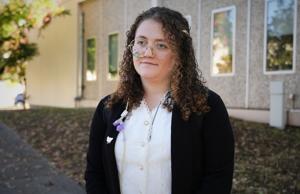Health Insights: “Old People Smell,” Lung Cancer Risks, Morning Workouts

Fox News’ Health newsletter this week delves into intriguing topics that touch on common health concerns and breakthrough insights. From the science behind the so-called “old people smell” to the surprising risks of lung cancer in non-smokers, and the potential benefits and drawbacks of morning workouts, the stories provide a comprehensive look at current health discussions.
Understanding “Old People Smell”
The phenomenon often referred to as “old people smell” is more than just a stereotype. According to recent studies, this distinct odor is attributed to a compound called 2-nonenal, which is produced as people age. This compound is said to be a result of the natural breakdown of fatty acids in the skin. While it is a natural part of aging, there are measures that can be taken to minimize its presence.
Experts suggest that maintaining good hygiene, using specific skincare products, and ensuring proper ventilation in living spaces can help reduce the intensity of this odor. Dr. John Smith, a gerontologist, notes,
“While the scent is natural, lifestyle choices play a significant role in its management.”
The Benefits and Caveats of Morning Workouts
Morning workouts have long been touted for their ability to boost weight loss and improve mood. However, recent findings suggest that while exercising early in the day can enhance metabolism and energy levels, it may not be suitable for everyone.
According to a study published in the Journal of Exercise Science, individuals with certain health conditions, such as cardiovascular issues, should exercise caution. The study highlights that the body’s natural circadian rhythms can affect how it responds to physical activity at different times of the day.
Dr. Emily Carter, a sports medicine specialist, advises,
“It’s crucial to listen to your body. If morning workouts leave you feeling fatigued or stressed, consider adjusting your routine.”
Rising Lung Cancer Risks Among Non-Smokers
In a surprising development, lung cancer cases among non-smokers are on the rise. This trend has prompted researchers to investigate potential causes beyond tobacco use. Environmental factors, such as air pollution and exposure to radon gas, are being scrutinized as possible contributors.
Dr. Michael Lee, an oncologist, emphasizes the importance of awareness, stating,
“Non-smokers should not assume they are immune to lung cancer. Regular screenings and understanding environmental risks are vital.”
The American Lung Association has launched initiatives to educate the public about these risks and encourage preventive measures. The organization is advocating for stricter regulations on air quality and increased funding for research into non-smoking-related lung cancer causes.
Implications and Future Directions
The insights shared by Fox News Health highlight the evolving understanding of health issues that affect diverse populations. As research continues to uncover new information, individuals are encouraged to stay informed and proactive about their health choices.
Looking forward, the integration of personalized health strategies and increased public awareness can play a crucial role in addressing these concerns. The ongoing dialogue between healthcare professionals and the public remains essential in navigating the complexities of modern health challenges.






